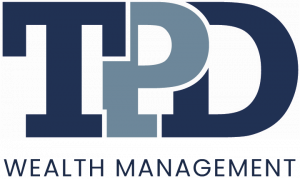
Applying for a mortgage, whether you’re buying your first home or remortgaging, can feel like a daunting task. While you might be putting it off, tackling it sooner could save you money and make it well worth your while over the long term.
As mortgage advisers, we’re here to help you find the right mortgage for your needs, and offer guidance throughout the application process. So, here are five essential tips that could make it as smooth as possible.
1. Be realistic and apply for a mortgage in principle
Be clear about how much money you want to borrow, and take some time to understand if it’s realistic.
Even if you’re not borrowing to purchase a new property, understanding what you could access may be useful. For example, you might decide to increase your mortgage to fund other purchases or update your home.
A general rule is that you can borrow up to five times your household’s annual income. However, each lender has its own criteria, and you might be able to take out a larger mortgage depending on your circumstances.
You can apply for a mortgage in principle with a lender. This will provide an idea of the maximum you could borrow and how it might affect your repayments. While useful, a mortgage in principle isn’t a guarantee.
When it’s time to apply for a mortgage, you don’t have to select the lender you choose for a mortgage in principle.
2. Take the time to prepare
If you want your mortgage application to be as straightforward as possible, being organised is key.
A few months before you’ll be applying, access your credit report. Lenders will use this information to assess how much of a risk you pose. By reviewing the details first, you could address potential red flags or, if necessary, approach a specialist lender.
There might be some things you can do to improve your credit score. For instance, if you register on the electoral roll, clear debt, or close old accounts, your application could look more appealing to lenders. It can take several months for changes to show up on your report, so tackling this step as soon as possible could be useful.
As well as potentially improving the odds of your application being accepted, a good credit report might lead to you paying a lower rate of interest and saving money.
Once you’re ready to apply for a mortgage, take some time to prepare your paperwork.
Lenders will want to see evidence of your income, address, and ID. Depending on your circumstances, they may also ask to prove where your deposit has come from, or, if you’re self-employed, to provide accounts for the last few years.
Having all this information in hand could minimise mistakes.
As a mortgage adviser, we could look through your application before it’s sent to a lender to highlight potential issues.
3. Watch your spending in the months before you apply
Often, you’ll need to provide three months of bank statements to a lender as part of your application. It may be beneficial to spend more cautiously than you normally do during this period and be aware of red flags such as payday lenders, gambling payments, and using your overdraft.
In addition, try not to open new lines of credit in the months before you apply for a mortgage. It could suggest to a lender that you’ve recently increased your financial commitments or aren’t managing your finances well.
4. Consider your long-term plans
It’s important to choose a mortgage that works for you, so spending some time thinking about your plans could be useful. Some areas you might want to consider are:
- Mortgage term: This is how long you’ll repay the mortgage. Leaving a mortgage deal early could lead to a fee, so if you plan to move soon, you might want to reflect this in the deals you’re reviewing.
- Fixed- or variable-rate: If you prefer to know how much your outgoings will be each month, a fixed-rate mortgage deal could be right for you, as the interest rate will be fixed for a defined period. If you’re happy for the repayments to change, and potentially benefit if interest rates fall, you might want to choose a variable-rate mortgage.
- Overpaying: If you’re keen to reduce your mortgage debt as fast as possible, you might choose a deal that allows you to overpay without incurring an early repayment charge.
There are many different types of mortgages, contact us to talk about your needs and plans, and we’ll work with you to identify those that could be right for you.
5. Take the time to find the right lender for you
Don’t apply for a mortgage with the first lender you find. Choosing the right lender for you might mean your:
- Interest rate is competitive
- Arrangement fees are lower
- Application is more likely to be accepted
- Mortgage comes with additional benefits, such as cashback.
It can be difficult to understand the criteria of each lender, especially those you might not be familiar with. Contact us to talk about your mortgage and how we could help you.
Please note: This blog is for general information only and does not constitute financial advice, which should be based on your individual circumstances. The information is aimed at retail clients only.
Your home may be repossessed if you do not keep up repayments on a mortgage or other loans secured on it.


